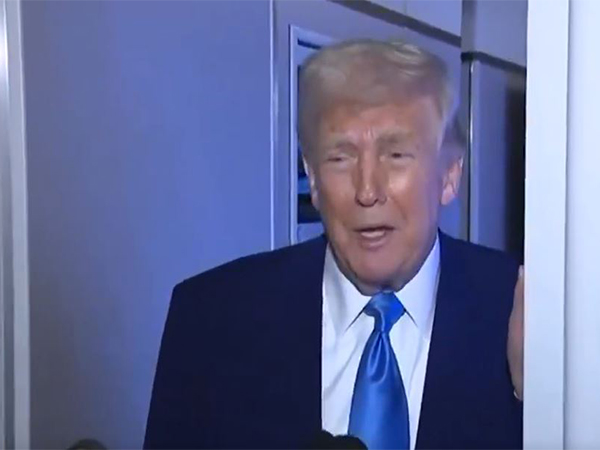Pak Finance Minister blames Imran Khan's PTI for derailing country's economy
Oct 02, 2022

Lahore [Pakistan], October 2 : Ishaq Dar, who replaced Miftah Ismail as the new Finance Minister of Pakistan, has taken a sharp dig at Imran Khan and blamed his party for the country's poor economy as he vowed to provide more relief to the masses in the coming weeks.
Addressing a press conference recently, Ishaq Dar lambasted the Imran Khan-led PTI government for Pakistan's economy-driven political crisis and vowed to reverse the damage caused to the economy by the previous government, saying that he passed on relief to the people by reducing fuel prices despite challenges, ARY News reported.
"We reduced petroleum prices last night and making all-out efforts to provide more relief to common people, the Finance Minister said.
"During the last five days, an improvement has been witnessed in the country's economic indicators including the appreciation of a rupee," the Finance Minister added, reported ARY News.
Pakistan Muslim League-N (PML-N) senator Ishaq Dar, who was involved in several corruption cases, was handed the responsibility of finance and revenue on Wednesday, shortly after he was sworn in as Federal Minister.
Dar was nominated by PML-N premier Nawaz Sharif and Prime Minister Shehbaz Sharif as the finance minister during a meeting on Sunday. A newly appointed minister, earlier this week, arrived in the country along with PM Sharif, Dawn reported.
Earlier, in May, the Pakistan court issued a perpetual arrest warrant against former Finance Minister Ishaq Dar in a "corruption reference."
According to media reports, Pakistan Prime Minister Shehbaz Sharif held a meeting with party supremo Nawaz Sharif in London on Saturday, where it was decided that the ruling coalition would hand over the Finance Ministry to Ishaq Dar after he returns to the country.
The resignation of Ismail comes after continued speculation that former Pakistan Prime Minister Nawaz Sharif was unhappy with some of his key decisions, including the hike in fuel prices.



















